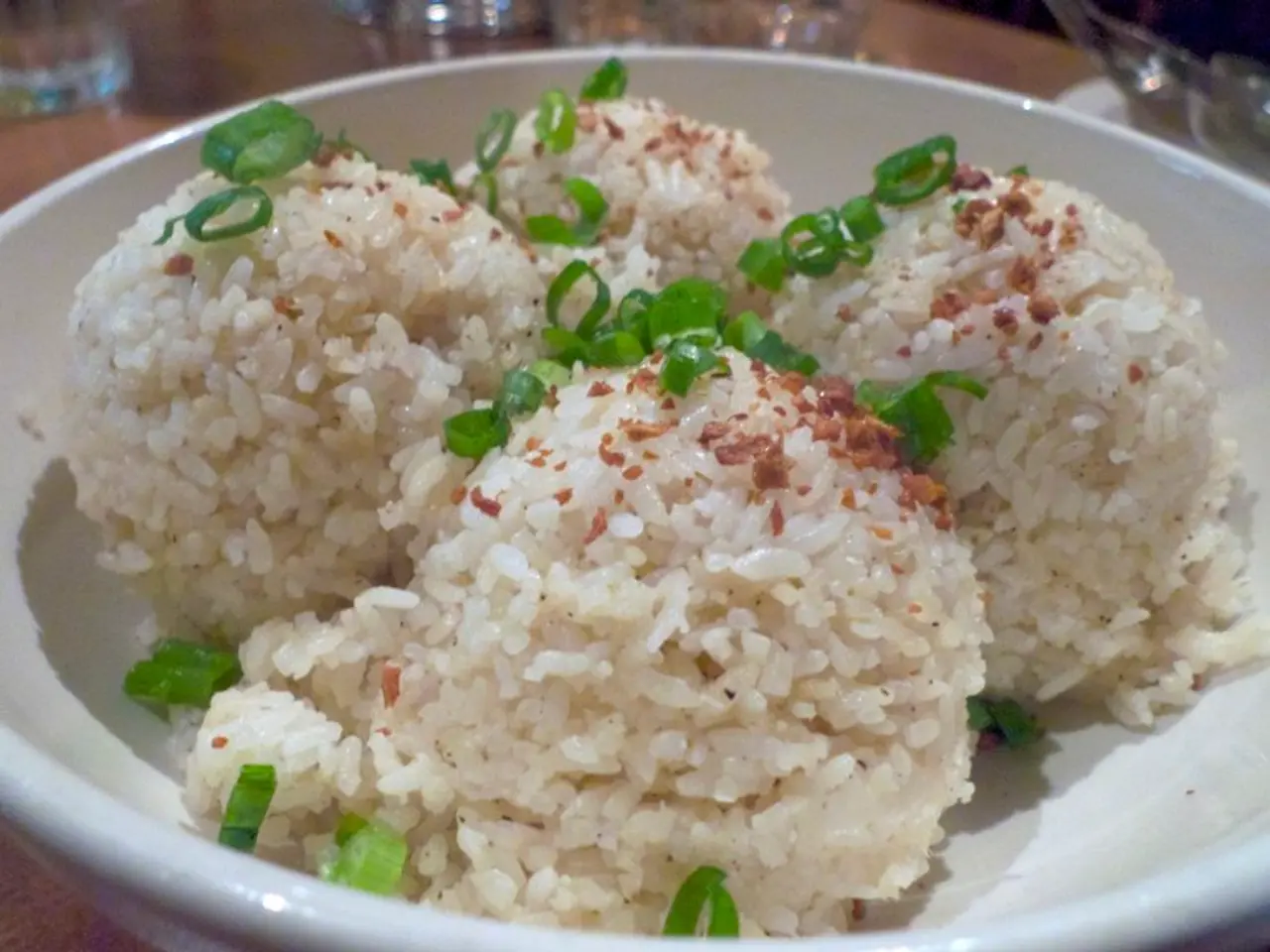Health benefits and potential risks associated with the consumption of Red Yeast Rice
Red yeast rice (RYR), a popular culinary and medicinal product in some Asian countries, has gained attention as a natural supplement to help lower cholesterol levels. However, its usage is not without controversy and concerns.
The FDA has issued several warnings regarding RYR products, stating that they may contain the toxin citrinin, which can lead to kidney failure, and may cause severe muscle problems leading to kidney impairment. Additionally, some RYR products are deemed adulterated by the FDA, as they contain trace amounts of monacolin K, the active ingredient in some statins.
The production of RYR involves the fermentation of Monascaceae mold, typically Monascus purpureus. During this process, substances known as monacolins are produced, with monacolin K being chemically identical to an active ingredient in some statins. However, the monacolin K content in RYR supplements varies significantly across brands, influencing their cholesterol-lowering efficacy and safety profile.
A 2020 study found variability in the strength of RYR supplements available in the United States, with some products containing none and others over 60-fold more monacolin K than others. This variability is a common concern since monacolin K is chemically similar to lovastatin, a statin drug, but RYR supplements are not regulated as drugs.
Moreover, unlike prescription statins, which have tightly controlled dosages, monacolin K in dietary supplements is not consistently standardized, leading to unpredictable dosing. This inconsistency in manufacturing and lack of regulatory control over these supplements reflects the lack of regulation RYR undergoes compared to statins and prescription medications.
Despite these concerns, some studies suggest that consuming 3-10 milligrams (mg) of monacolin K daily may have low associated risks and is a safe and effective way to manage mild to moderate hypercholesterolemia in people with no additional cardiovascular risk factors. Consuming monacolin K in RYR on a daily basis can reduce LDL cholesterol plasma levels by 15-25% within 6-8 weeks.
However, it is crucial to discuss RYR with a healthcare professional before taking it. Pregnant, breastfeeding individuals, and those currently taking statins should avoid RYR. Furthermore, RYR may interact with certain medications, including antidepressants, antibiotics, drugs for fungal and HIV infections, and other cholesterol-lowering medications.
In conclusion, while some RYR supplements in the US market contain around 2.9 mg monacolin K per dose, the overall monacolin K content shows significant variability across products, reflecting inconsistency in manufacturing and lack of regulatory control over these supplements. As a result, it is essential to approach RYR supplements with caution and discuss their use with a healthcare professional.
References:
- Red Yeast Rice: An Overview
- Monacolin K: Current Perspectives and Challenges
- Red Yeast Rice: A Systematic Review and Meta-Analysis of Randomized Controlled Trials for the Treatment of Hypercholesterolemia
- Red Yeast Rice: A Comprehensive Review of Its Pharmacology, Pharmacokinetics, Interactions, and Safety
- Red Yeast Rice: An Overview of Its Pharmacology, Pharmacokinetics, and Safety
- Red Yeast Rice for Hypercholesterolemia: A Systematic Review and Meta-Analysis
- Red Yeast Rice: A Mini-Review
- The variability in the strength of Red yeast rice (RYR) supplements available in the United States is a common concern, as some products contain no monacolin K while others have over 60-fold more than others.
- Unlike prescription statins, which have tightly controlled dosages, monacolin K in RYR dietary supplements is not consistently standardized, leading to unpredictable dosing.
- Consuming 3-10 milligrams (mg) of monacolin K daily may have low associated risks and is a safe and effective way to manage mild to moderate hypercholesterolemia in people with no additional cardiovascular risk factors.
- Pregnant, breastfeeding individuals, and those currently taking statins should avoid RYR, as it may interact with certain medications, including antidepressants, antibiotics, drugs for fungal and HIV infections, and other cholesterol-lowering medications.
- Science and medical research on RYR, such as the studies on its pharmacology, pharmacokinetics, interactions, and safety, are ongoing and offer valuable insights into the product's efficacy and safety profile.
- A healthcare professional should be consulted before taking RYR, as it undergoes less regulation compared to statins and prescription medications and its overall monacolin K content shows significant variability across products.




